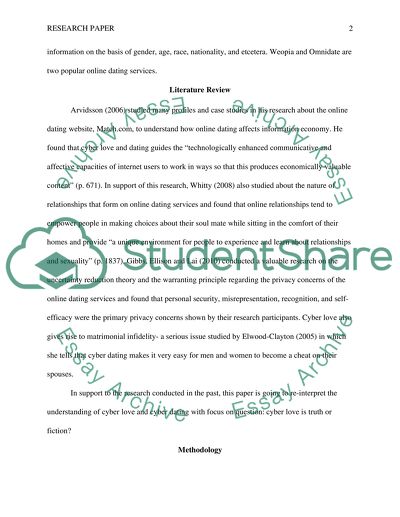Cite this document
(“Cyber Love - Truth or Fiction Research Paper Example | Topics and Well Written Essays - 2500 words”, n.d.)
Retrieved de https://studentshare.org/psychology/1391669-cyber-love-truth-or-fiction
Retrieved de https://studentshare.org/psychology/1391669-cyber-love-truth-or-fiction
(Cyber Love - Truth or Fiction Research Paper Example | Topics and Well Written Essays - 2500 Words)
https://studentshare.org/psychology/1391669-cyber-love-truth-or-fiction.
https://studentshare.org/psychology/1391669-cyber-love-truth-or-fiction.
“Cyber Love - Truth or Fiction Research Paper Example | Topics and Well Written Essays - 2500 Words”, n.d. https://studentshare.org/psychology/1391669-cyber-love-truth-or-fiction.


